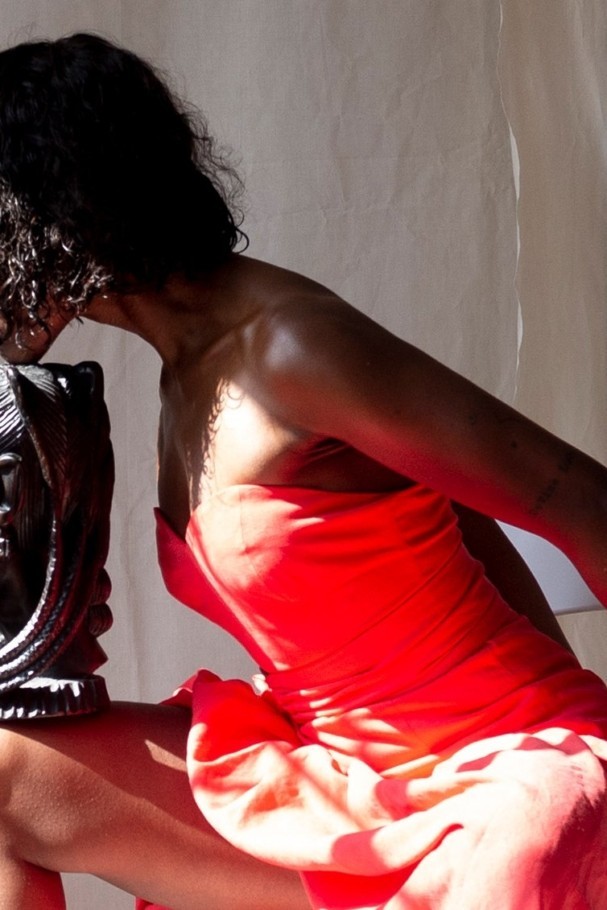
Nana Yaa Asare Boadu-A Goddess in Motion.
The expressive and abbreviated figures that dominate the ambitious canvases of Reginald Sylvester II’s earlier works appear in flashes in the epic gestural abstractions that constitute his latest work. Recognizable flickers emerge and rescind into the thicket of brushwork: was that an extended limb, a profile, a torso twisting back on itself? The frenetic energy conveyed through these glimpses of what may be human forms recalls the orgiastic sensibility of Elaine de Kooning’s Bacchus paintings as well as the dynamism of Joan Mitchell’s enveloping abstractions. Sylvester thereby stakes his place in a history of abstraction that is unconcerned with toeing a line of formal purity and unwilling to foreswear completely the figurative vocabulary from which these gestures evolve.
Sylvester’s works are informed by a range of experience within diverse visual economies that belies his young age. His sensibility draws from the media savvy gained from his time as a graphic designer, from a close knowledge of contemporary fashion, and from his historical grounding in Abstract Expressionist practices. Sylvester conceptualizes painting as a matter of finding, rather than spontaneously generating images, a practice rooted in Willem de Kooning’s philosophy of painting as well as broader theological traditions. Biblical wisdom compels faith in the unseen with the promise that our passage from material to ethereal states will manifest as knowledge beyond mortal comprehension. Yet Sylvester’s seeking through abstraction is rooted in social realities as well as spiritual practice. As images of victims of racist violence cycle through our media landscape with numbing regularity, refusing to figure the black body within exploitative systems of vision can constitute a radical act in itself.
Beneath the vital, interdependent marks that pulse through the surfaces of Sylvester’s canvases lie strata of overpainting, each image containing volumes of its own history that the viewer will never completely know. This undergirding of formal experimentation and art historical discernment lends to each work its own particular grace.
Born in Jacksonville, North Carolina in 1987, Sylvester grew up in Oakland, California. He lives and works in New York. His work was recently the subject of solo exhibitions including NEMISIS at Maximillian William, London (2019), Reaching for Heaven at Pace Prints, New York (2016), The Rise and Fall of a People at Fondazione Stelline, Milan (2017) and Premonition at the Lever House Art Collection, New York (2017). Sylvester’s work was also featured prominently in the group exhibitions Punch, curated for Jeffrey Deitch Los Angeles by the artist Nina Chanel Abney (2019), and Surface Issues at Leila Heller Gallery, Dubai (2017).





